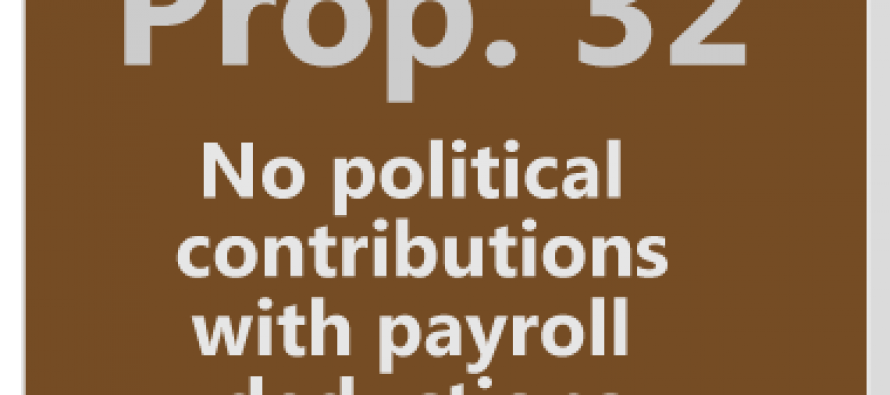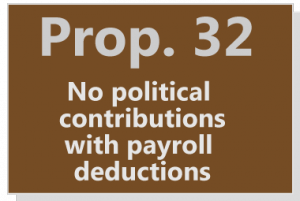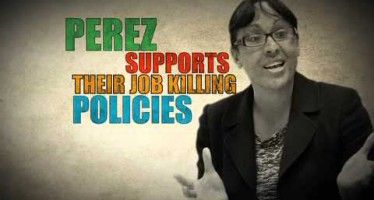Union power prevents public-sector union reform

“Public employees have a private interest in taking more and more of the taxpayer-generated revenue for themselves. In other words, public employees have a private interest in diverting public funds from public services to their wages and pensions. In this sense, the increasing numbers of public employees and their increasing wages and benefits threaten to hollow out public services in our country.”
— Roger Berkowitz, Executive Director, Hannah Arendt Center
 The above quote explains quite well the intrinsic conflict of interest that accrues to public-sector unions. This conflict of interest is the primary distinction between public-sector unions and private-sector unions. It is the reason that private-sector unions can muster strong arguments for their continued relevance in society, whereas the very legitimacy of public-sector unions is questionable.
The above quote explains quite well the intrinsic conflict of interest that accrues to public-sector unions. This conflict of interest is the primary distinction between public-sector unions and private-sector unions. It is the reason that private-sector unions can muster strong arguments for their continued relevance in society, whereas the very legitimacy of public-sector unions is questionable.
And lest anyone suggest that calls for reform — if not the abolition — of public-sector unions emanates solely from the “extreme right wing,” consider the provenance of the above quote. The highly regarded, intellectually elite Hannah Arendt Center boasts perhaps the most impeccable nonpartisan, anti-ideological credentials of any comparable institution in the world. It is named after famous political philosopher Hannah Arendt, the author of numerous books, the most famous being “The Origins of Totalitarianism.”
The reason Democrats don’t support public-sector union reform is obvious. There is no special interest in America that donates more money to the Democratic Party than public-sector unions. The data in the table below make this clear. If you go to the source of this data, OpenSecrets.org, you will see that the vast majority of the $535 million contributed to Democrats between 2000 and 2010 came from public-sector unions, whose membership in absolute numbers now exceeds that of private-sector unions.
In California, where public-sector union spending on state and local campaigns and lobbying exceeds $500 million per two-year cycle, the same percentages apply.
Conflicts of interest
Democrats are reluctant to recognize the conflict of interest because the Democratic Party is financially dependent on public-sector unions. It is significant that, on the above table, which covers federal elections and lobbying efforts, corporate contributions are nearly balanced between Democrats and Republicans. If union spending provided a counterweight to corporate spending, as the unions claim, then one could make a case against reform.
But “union spending” is predominantly “public-sector union spending,” and their primary agenda has nothing to do with protecting the rights of private-sector workers. Their agenda has to do with exempting public-sector workers from the economic challenges facing ordinary American workers who have to compete — along with corporations — in the global economy. And corporations, facing a monolithic, self-interested, unionized government, play ball.
Breaking the power of public-sector unions, if not eliminating them altogether, is a prerequisite, ironically, to reforming the financial sector and restoring a competitive corporate environment. It is also a prerequisite to reforming taxpayer-funded, government-administered benefits and entitlements so that all American workers earn them according to the same set of formulas and incentives — regardless of whether or not they work for the government or in the private sector.
Most of the public-sector union reform strategies that have been attempted — successfully or not — have been oriented toward facilitating “opt-out” behavior for government workers. Right-to-work laws allow employees of unionized government agencies to refuse to pay union dues. Most states, even California, permit employees of unionized government agencies to opt-out of paying the political portion of their dues. But these reforms do nothing to stop the overwhelming portion of government union money flowing to Democrats, a partisan strategy on the part of public-sector union leadership that is entirely unrepresentative of their membership.
Party identification
Taking this concept to its logical extreme makes the point clear: Using very rough numbers, the party identification among America’s government workers nearly mirrors that of the private-sector workers, splitting about one-third each among Democrats, Republicans, and Independents, according to a Gallup poll in 2011.
A successful paycheck protection law would, arguably, result in government political contributions diminishing by one-third — possibly more, depending on the sentiments of independents. That is, instead of diverting, for example, $100 million dollars from the taxpayer-funded government payroll into the coffers of the Democratic party, only $66 million would go there. The Republicans would still get nothing, and the essence of a forcibly politicized government workforce would remain intact.
Other than abolition, speculating over what alternative public-sector union reform strategy might be more effective than “paycheck protection” is dangerous. Paycheck protection laws are similar to Proposition 32 on California’s November 2012 ballot. In the ballot language, it would have prohibited “unions from using payroll-deducted funds for political purposes.” Voters turned it down, 57-43.
But it might be possible to force, through litigation, the allocation of government union political contributions to parties according to the party registration of the union memberships. Once per year, unionized government workers would fill out a form where they would disclose, anonymously, their party registration. A 3rd party agency, perhaps a major public accounting firm, would collect these ballots, collect the political contributions, and allocate the money to the respective parties based on the voting of the members.
* * *
Ed Ring is the executive director of the California Public Policy Center.
Related Articles
CA water cuts hit farmers
As state policymakers turned their eye on reforming groundwater rules, California’s farmers sought a new deal on water rights, voluntarily
State of the Union: Obama, the rich, the poor and California
In his State of the Union address tonight, President Obama is expected to talk about the gap between rich and
Expected Vidak-Perez runoff would spark national attention
May 30, 2013 By Katy Grimes Only hours after appearing to win the election outright for State Senate District 16




